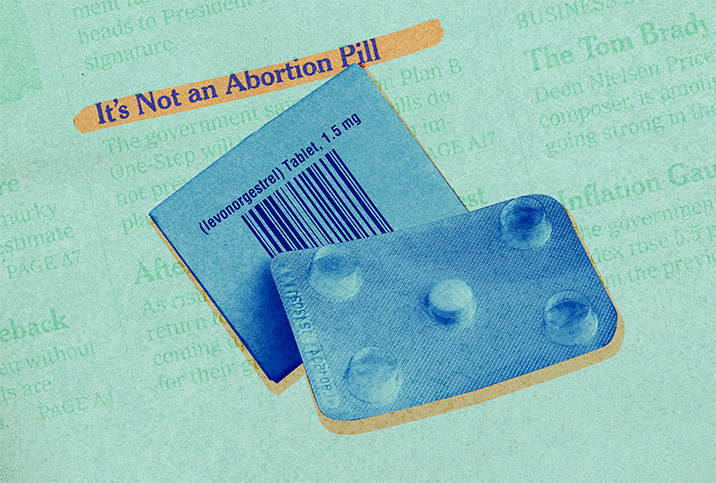University Offers Emergency Contraception from a Vending Machine

The dorms of George Washington University in Washington, D.C., are located within walking distance of a CVS. The drugstore is open 24 hours and sells emergency contraception for about $50. Unfortunately, the medication is often sold out, according to Aiza Saeed, a GWU senior.
A drugstore that is often out of what's also known as the morning-after pill presents a problem for interested buyers, who have a small window of time to take the medication.
To reduce the risk of pregnancy, Plan B and other levonorgestrel morning-after pills must be taken no later than five days after unprotected sex—sooner is better—according to Planned Parenthood.
The GWU student healthcare center also offers emergency contraception, according to Saeed, and it's free—if you're part of the student health insurance plan.
"Less than 10 percent of the student population is actually on the health insurance [plan]," Saeed said.
Saeed and sophomore Neharika Rao, both a part of the student government at GWU, observed growing frustrations about the lack of access to the morning-after pill.
The U.S. Supreme Court's 2022 Dobbs v. Jackson Women's Health Organization decision, which essentially overturned Roe v. Wade—after which GWU students called for the dismissal of Justice Clarence Thomas from his teaching position at the university—spurred Saeed and Rao into action.
"A lot of people throughout the United States, and students at the school, felt that this was an attack on reproductive rights," Rao said. "We wanted to show that we had the students' backs in a time of need."
After a student body survey demonstrated widespread support, Saeed and Rao spearheaded efforts to bring to campus a vending machine that sells emergency contraception.
The vending machine was installed in the basement of the student center during the school's winter break, making GWU part of a growing number of U.S. college campuses with such a vending machine. It sells emergency contraception for $30, according to a university spokesperson who emphasized that GWU did not purchase or subsidize the product.
Rao said the new vending machine has been well-received. Now the students are working to get the $30 price dropped.
"We've tackled the accessibility issue; now we want to focus on affordability," Rao said.
Expanding emergency contraception access on campuses
Nicola Brogan, a registered nurse and project manager for the American Society for Emergency Contraception (ASEC), said improving access to all contraceptive methods for everyone is important, particularly for students.
"It's such an expensive product over the counter, it's often not obtainable for [students]," Brogan said. "Making it accessible on campus at a reduced cost—or even potentially by donation or free—is really important so they have actual choices when it comes to their own reproductive autonomy."
Brogan's organization is working on expanding access to emergency contraception on campuses through the Emergency Contraception for Every Campus (EC4EC) project. ASEC collaborates with students to install vending machines and introduce other options for accessing emergency contraception at their schools.
"The benefit of a vending machine is, in most scenarios, they already exist on campus," Brogan explained. "If students are able to work with the administration, it's often an easier way of doing it because they can repurpose a slot in a preexisting vending machine or add a new vending machine through this existing contractor."
Vending machines also offer confidentiality.
"More often than not, vending machines offer more than one product, so nobody knows what you're buying from it," she said.
"The other piece to that is [a vending machine] is often most accessible because it can be put in a place that's potentially open 24 hours," Brogan added. "This really maximizes the number of hours that students have to purchase the product, instead of being stuck to whatever their health service or local pharmacy hours are."
Vending machines also represent a way to deliver pills to students at a reduced cost. Brogan noted that many schools subsidize the cost and offer emergency contraception for between $10 and $25—significantly less than the $30 to $50 cost typically seen in stores.
For students interested in bringing a vending machine to their campus, Brogan points them toward the EC4EC step-by-step guide.
"In a nutshell, the best approach is to gather your materials," she said. "We often suggest that students do a needs survey with the student body to find out what their opinion is about a vending machine that sells emergency contraception, so they know what they're talking about when they go to administration, because ultimately, a vending machine requires their campus [administration's] approval."
Rao and Saeed advise students aspiring to follow in their footsteps to remain persistent.
"We really did not think we were going to get as far as we did," Rao said. "We were pleasantly surprised to see how much support we had and how quickly things can get done."


















